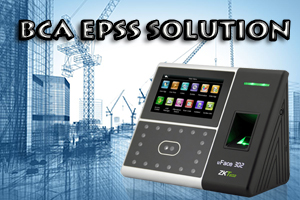What are the Current Singapore Income Tax Rate?

Investors turn to Singapore for establishing their operations for several reasons. The ease of setting up and operating businesses is a prime motivator. Another central determinant is income tax singapore regime – well-known for its attractive corporate and personal tax rates, tax relief measures, absence of capital gains tax, one-tier tax system, and extensive double tax treaties.
Persons, including corporations, partnerships, trustees and bodies of persons carrying on any trade, profession or business in Singapore are chargeable to tax on all profits (excluding profits arising from the sale of capital assets) arising in or derived from Singapore and certain foreign-sourced income from such trade, profession or business. The purpose of this guide is to provide a general overview of Singapore’s tax system and tax rates. We also have a very useful online tax calculator that you can use to estimate your Singapore taxes and to compare how they stack up against those in your home country.
In Singapore, we follow a progressive personal income tax singapore rate which starts at 0% and maxes out at 22% for employment incomes above $320,000. PSA: For 2020, the deadline for personal income tax submission has been extended from 18 April 2020 (Saturday) to 31 May 2020 (Sunday).
Singapore’s personal income tax rates for resident taxpayers are progressive. This means higher income earners pay a proportionately higher tax, with the current highest personal income tax rate at 22%.
Exemptions for Income Tax Singapore Company
For the first three consecutive Year of Assessments, qualifying companies can enjoy tax exemption as follows.

All Singapore companies can enjoy partial tax exemption unless the companies have already claimed the Tax Exemptions for New Start-Up Companies.

Current Rate For Income Tax Singapore
Corporate Income Tax Singapore Rate
The current corporate tax rates in Singapore are as follows:

Individual Income Tax Singapore Rate
The current individual tax rates in Singapore are as follows:

Who should pay for income tax Singapore residents?
The amount of tax an individual must pay depends on his or her tax residency status. In Singapore, the following individuals are considered to be tax residents of the country:
- Singapore citizens
- Singapore permanent residents
- Any foreigner who has worked or stayed in Singapore for 183 days or more
Key Facts about Personal Income Tax Singapore
- Singapore tax residents are taxed at a progressive rate of 0% to 22%
- Non-tax residents are taxed at a rate that varies between 15% to 22%
- There are no taxes on capital gains, dividends or inheritance
- With a few exception, foreign-sourced income is exempt from taxes levied by Singapore
Types of Income Tax Singapore
The following list provides the most common types of taxes companies and individuals pay in Singapore.
Corporate income tax: Singapore’s current headline tax rate is capped at 17%. However, with the tax exemption and incentive programs offered by the Singapore government, the effective tax rate for companies can be significantly lower.
Goods and Services tax: The Singapore government levies a 7% goods and services tax on general consumption and imported goods.
Withholding tax: In order to collect taxes on income earned by non-residents, Singapore levies withholding tax. Payments made to non-residents of Singapore such as interest payments, rent payments, royalties, and business management fees are all subject to withholding tax. Furthermore, non-resident employees and professionals are required to pay withholding tax. Withholding tax rates vary based on who receives the payment and the services rendered.
Customs and Excise Duty: Singapore is essentially a duty-free port. Singapore does not tax exports and import duty is levied only on petroleum products, tobacco products, motor vehicles, and liquor.
Property tax: Real estate owners in Singapore are required to pay annual property taxes. Singapore levies property taxes on a progressive scale based on the annual value (AV) of the property. AV is determined by estimating the gross income of the property if it were rented. Overall, Singapore property tax rates are considered very low especially for owner-occupied property.
Stamp Duty: Stamp duty refers to the tax paid on the transfer of real estate property and company shares.
How Income Tax Singapore System Benefits Businesses?
Companies can quickly set up in Singapore and begin to take advantage of low corporate income tax singapore rates including tax schemes that help lower taxes for new businesses and startups. Furthermore, Singapore’s corporate tax structure rewards enterprising companies through tax incentives and grants.
With a single-tier tax system, Singapore only taxes company profits, but does not tax dividends issued to shareholders. Similarly, Singapore does not tax capital gains and most types of foreign-sourced income. For example, if you launch your startup and sell it for $100 million, you will pay ZERO taxes on your sale of shares in Singapore.
The extensive network of Avoidance of Double Taxation Agreements (DTAs) and Unilateral Tax Credits allow Singapore companies to limit or eliminate taxes on foreign-sourced income.
How Income Tax Singapore System Benefits Individuals?
Singapore continues to attract top talent from around the world by offering low personal income tax singapore rates. Individuals can also greatly reduce their effective income tax singapore rate by taking advantage of the generous deductions offered by the Singapore government.
In general, individual income derived from a source outside of Singapore is not taxable. This includes income that has been received in a Singapore bank account. Furthermore, individuals do not have to pay taxes on dividends, capital gains or inheritance.
Lastly, non-resident individuals working in Singapore can seek tax relief through Singapore’s network of DTAs.





